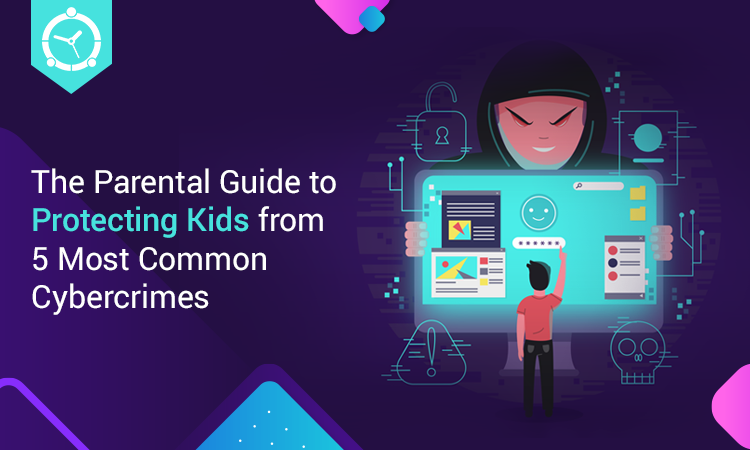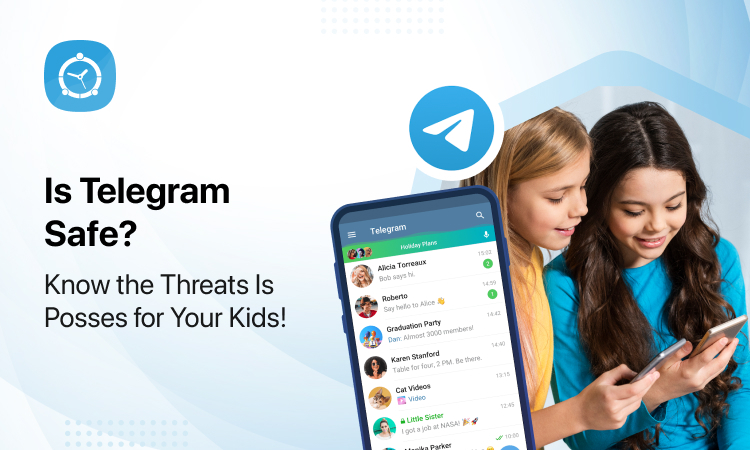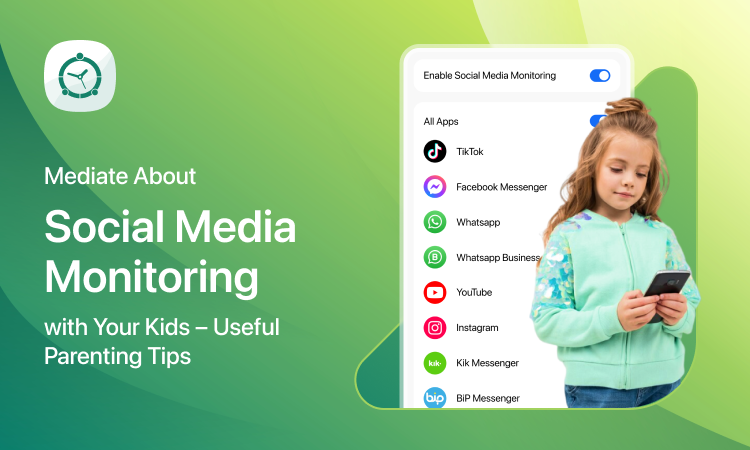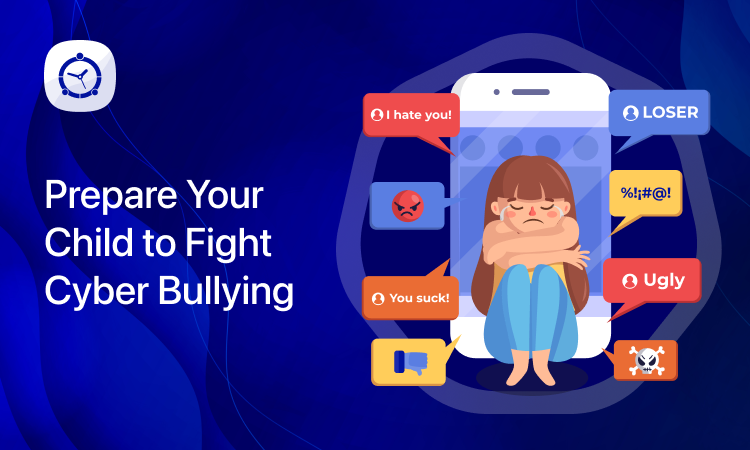
While we love to reap the benefits of digital advancements, the consequential rise of cybercrimes cannot be ignored. From malware to phishing attacks to identity theft and more – there is no end in sight to the ever-growing rate of cybercrimes nowadays.
The worst part is that these cyber threats continue to skyrocket, as does our dependence on technology. Indeed, kids are more tech-savvy than their parents. However, their innocence and inability to foresee digital threats put them at risk of getting victimized by cybercriminals.
That is why parents need to be on guard and protect their kids from experiencing such horrible fates – a task they can accomplish using parental control apps, such as FamilyTime. Let’s explore the five most common cybercrimes that parents must know about.
5 Most Common Cybercrimes of Our Time
Crimes like identity theft, cyberbullying, phishing attacks, hacking via malware/viruses, extortion/blackmail, catfishing, digital piracy, online grooming, etc., all count as cybercrimes. It is worth noting that cybercrimes are punishable by the law and entail real-world consequences, all the more reason for parents to use parental control apps and be extra cautious to ensure kids’ internet safety.
Though the list of cybercrimes seems unending, we will explore only the most predominant (top) five that parents must beware of.
1 – Identity Theft
Identity theft is when an individual assumes another’s identity. In simpler words, it is impersonation, a crime punishable by law. Kids and teens who post their personal details online are more prone to become a target of cybercrimes like identity theft. These criminals use various methods to extract information such as social security number, date of birth, (legal) full name, etc., to create a fake identity with a different address, and the victim is left to deal with the aftermath.
2 – Phishing Attack
Most cybercrimes are interlinked, and many of these crimes depend on the acquisition of users’ data. Phishing attacks are no different. It is a type of online fraud that hinges on obtaining people’s usernames, passwords, credit card details, etc. The scammers pose as someone from a reputable organization tasked with acquiring your personal details. These scams are typically carried out in the form of electronic communication, i.e., emails or instant messages.
3 – Hacking via Malware/Viruses
Most phishing attacks work alongside hackers. That is because phishing scammers often send virus-infected files/images/links etc., to their targets. Once you click on any of them, the hackers find their way into your accounts/computers/devices and can extract any and all information they need to commit numerous other crimes.
4 – Extortion/Blackmail
Everyone is familiar with extortion/blackmail as it is a tale as old as time. Such criminals threaten to expose compromising data/pictures of their victims to the public. They ask for monetary, sexual, or other favors in exchange for their silence. Extortion or blackmail is (very closely) linked to cyberstalking, where stalkers use technology to harass, intimidate, and threaten others online. It can be very exhausting, cruel, and pointless to play this game of cat and mouse. The best solution is to come clean and protect yourself online.
5 – Cyberbullying
Cyberbullying is when someone purposely bullies, insults, and intimidates others online. Bullies may make false claims or spread rumors against their victims to belittle them and make them feel miserable. Cyberbullies are often closer to the victims, which makes the whole thing even worse.
Other Common Forms of Cybercrimes
Apart from the ones discussed above, some of the most commonly occurring cybercrimes include the following.
- Online grooming
- Digital piracy
- Cyberterrorism
- Fraud
- Distributing child pornography, etc.
How to Protect Kids Against Cybercrimes?
Since cybercrimes depend on personal information and happen in the digital world, parents must focus on safeguarding their kids’ data. The first step on the track is to raise awareness of such crimes and their consequences. The next logical step is to use parental control apps such as FamilyTime to ensure kids’ internet safety.
How Can FamilyTime Help?
FamilyTime offers features like internet filters, call & text monitoring, social media monitoring, app blockers, and a whole lot more. These features can help parents mitigate the risk of cybercrimes and ensure the digital safety of their kids.

Internet Filter – This setting allows parents to block inappropriate websites and content using keywords like pornography, gambling, drugs, violence, etc.
SafeSearch – Parents can remove indecent content and prevent exposure to age-inappropriate data by turning on the SafeSearch feature.
App Blocker – If you are worried that your kids may use dangerous apps or gaming platforms, you can use it to revoke kids’ access to all unsuitable platforms/apps.
Call & Text Monitoring – This feature can help you prevent phishing attacks and scammers that try to take advantage of your kids via calls or messages.
Explore its website to find out more about FamilyTime, one of the best parental control apps. Parents can sign up for a free 3-day trial to test the app and protect kids from the cruelty of the digital world.







